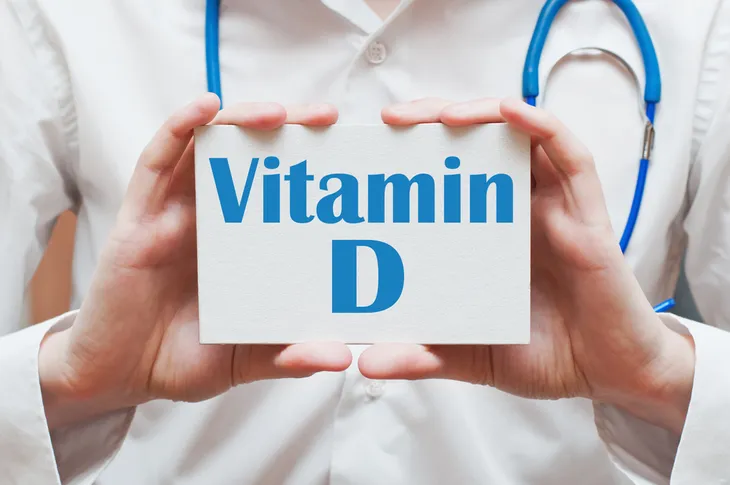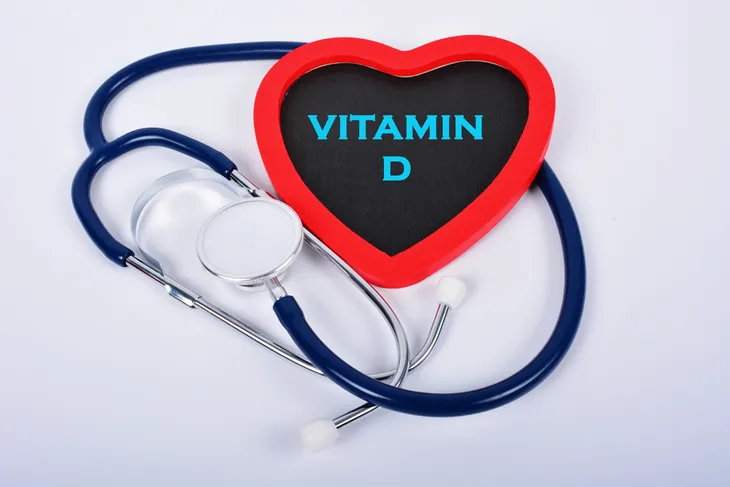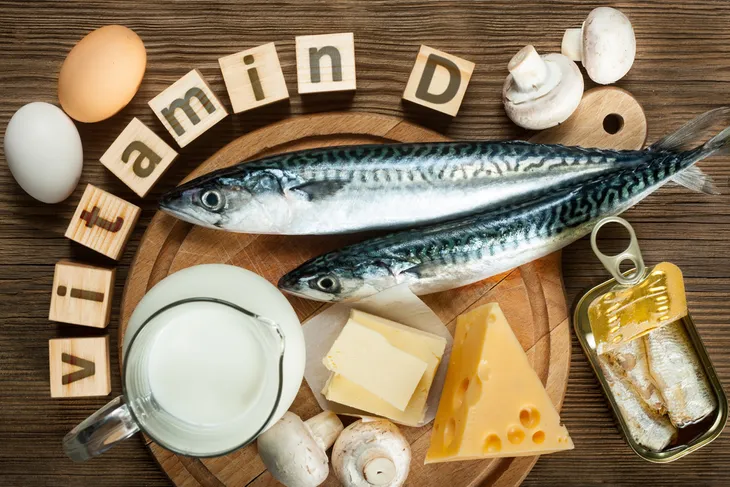It’s probably pretty strange to see an article about vitamin D during the summer. After all, the majority of North Americans are currently basking in available sunlight for more hours compared to any other time of year. However, many of us are still lacking in the essential vitamin that protects so many important aspects of our health—our brain, bones, heart, muscles, and immune system—all have vitamin D receptors and all require the nutrient for proper function. The fact is, even though it’s summer many of us still don’t get outside enough to get the adequate amount of vitamin D (a vitamin that’s produced by our cells when the skin absorbs the sun’s rays).
Here are eight enlightening facts about the importance of the “sunshine vitamin”…
Want diet & nutrition content delivered straight to your inbox? Sign up for our exclusive diet & nutrition newsletter!
1. Vitamin D for Bone Health
If you suffer from bone pain or frequent sprains and fractures, Vitamin D deficiency is often the culprit. The vitamin’s most basic role is calcium absorption. Without adequate calcium, the body can suffer from a weakening of the bones, nails, hair, and teeth. In fact, the long-term deficiency of the sunshine vitamin can lead to a condition known as osteomalacia, in which the bones gradually soften, eventually causing osteoporosis, a condition that causes bone and muscle weakness as well as chronic pain.
2. Vitamin D for Brain Health
Research has also shown that vitamin D acts similarly to a hormone in the body, and may play a role in regulating blood pressure, weight and mood. One recent study even suggests that having adequate levels can protect against early fatalities from conditions like cancer and heart disease.
3. Vitamin D for a Healthy Heart
A growing collection of research has linked vitamin D may to heart health. For example, multiple studies discovered that low vitamin D was to blame when high blood pressure worsened during the winter (or in low sunlight environments far removed from the equator). Scientists from Harvard University remind us that the blood vessels and the heart contain countless vitamin D receptors, so it makes perfect sense that the sunshine vitamin helps to in the regulation of both areas.
4. Vitamin D Deficiency and Weight Gain
If you struggle with insulin imbalance, and weight gain, again, vitamin D deficiency is often looked to as the culprit. Findings from an Iranian study published by the National Institutes of Health found that low vitamin D levels may have an adverse effect on the insulin secretion and glucose tolerance of type 2 diabetes patients. Another collaborative study conducted by the British Heart Foundation and the UK Medical Research Council drew a correlation between an influx of societal obesity and vitamin D deficiency.
5. Vitamin D for Hormone Regulation
Mood swings are yet another unexpected symptom of vitamin D deficiency. From periods of unexplained irritability to chronic Seasonal Affective Disorder (or SAD), and other mood disorders, a massive body of scientific research links lack of sunshine to an inevitable drop in vitamin D levels, which cause serotonin (the happy hormone) levels to plummet in the brain, leading to depression.
6. Top Shelf Vitamin D
Sure, you can rush out and buy vitamin D supplements. However, researchers from Harvard Medical School attest that sunlight is the best and purest source. The body produces its own stores of vitamin D when exposed to ultraviolet (UVB and UVA) light. For the average individual, just 5 to 10-minutes of sunlight (without sunscreen) a few times each week is adequate for vitamin D synthesizing.
7. Vitamin D Via Fortified Foods
In colder, darker weeks when you’re either not able to get outside much or when sunlight isn’t as plentiful food can provide some vitamin D stores. However, natural vitamin D food sources can be hard to come by and difficult to satisfy daily sources (the Institute of Medicine recommends 600 IU for average adults, per day). Focus on:
- Fatty, cold water fish (i.e., salmon, herring, sardines, tuna, and mackerel)
- Fortified milk, juices, cheese, or cereals (with individual serving sizes containing at least 100 IU of vitamin D)
- Eggs
8. Vitamin D Supplementation
Vitamin D deficiency is common among two-thirds of Americans, particularly if you lead a life primarily indoors, suffer with kidney issues (which obstructs vitamin conversion), have dark skin pigmentation (curtails skin absorption), are obese (nutrients leach out via body fat), have a dairy allergy (not getting adequate calcium), or follow a strict vegetarian or vegan diet (not eating fish, milk, or eggs). In all cases, supplementing with vitamin D may be an option. Research from the University of Auckland, New Zealand, linked vitamin D supplementation to an overall decrease in osteoporosis, but still advises individuals speak to their doctor before starting any new vitamin regimen.











